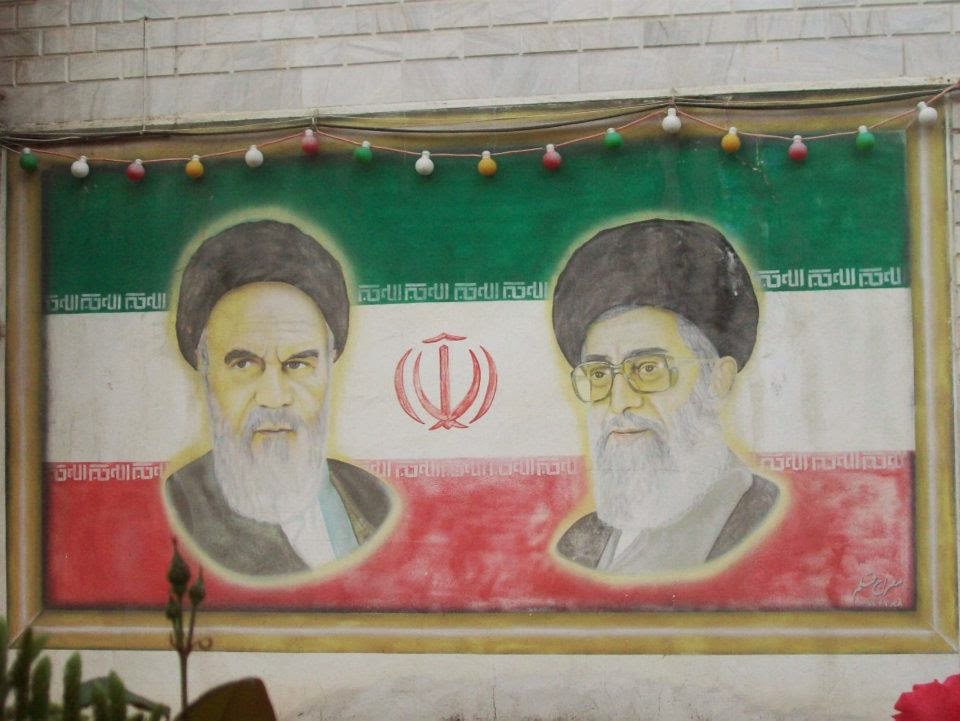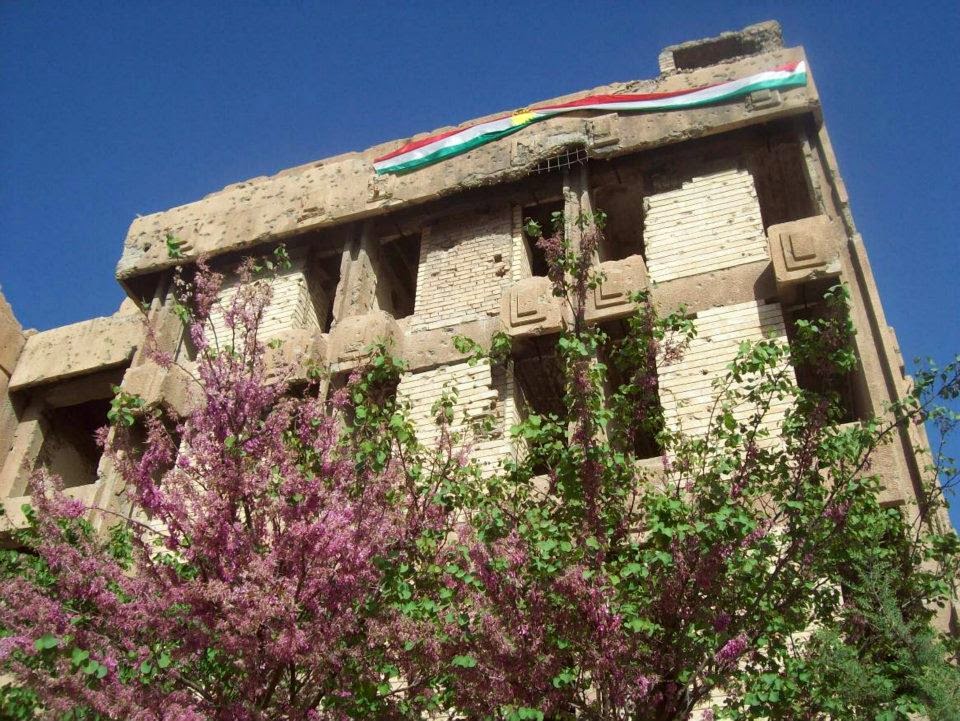The natural border between Ramsar and
Tehran was created by a big mountain range, known az Alborz. Even if our distance
to the capital seemed short by looking on the map, Ilaria and me had to start
our trip quite early in order to reach our final destination. As the
car which we stopped didn't go straight to the capital, we got a
chance to say goodbye to the Caspian sea by making a small town
Chalus, as our last stop before inhaling dirty air of Tehran. A quiet
beach was perfect place for meditation, but as we were not
meditating type of people, we managed to find a small wooden coffee
shop. Hehe, coffee magic... and the Caspian see... and some random
hungry ducks asking us for food on their own language. Perfect
combination. Our calmness was interrupted by a car trying to drive on
the sand. As I mentioned before, Iranians would even drive into the
sea, if it would be possible. So... the car got stuck, and my small
muscles used their power to push the car out of the sand. Miracle
happened – I succeed.
After an hour on the beach, we went
back to the road trying to find a ride, by explaining that we don't pay for the rides (pul nadaram). An old man, with strange expression on his face stopped, and gave us a
ride. He might've been old, but his reflexes were still good. That's
because he worked as a freelance taxi driver, which we didn't realize
at the beginning. We reached the curvy road going through the
mountains, and the old man turned into a manic racer. He liked
overtaking other cars even on the full line, so we didn't enjoy
properly the incredible view over the big canyons. Half an hour later,
we realized that he actually charges for driving... so we had to go
out from the car, and find another ride from the gas station where he
planned to fill the tank with our money. Luckily, we found an elderly couple who were driving to Karaj, the big city just across the Alborz mountains, which we crossed after 3 hours. After we said goodbye to them, there was only 20km between us and the capital. We found the crossroad to Tehran, but due to misunderstanding with a woman who picked us from there, we realized quite late that she already drove us into Karaj. The rain started, and it made it difficult
to find a way out. Finally, one guy told us that he will drive us
there, but instead of it, he put us into some car, and after we left,
the mysterious driver said that the man from the street, to whom we
talked for 20 seconds, paid for our ride to Tehran.
The evening fell, we were still in the car. The streets were becoming wider every minute. I realized that we arrived. Shortly after we made our first steps on the capital's ground, I remember a small tornado of papers. The first reason was the wind. The second reason was election. Apparently, the campaign for election was so big, so there was not enough space for all the material printed. That's why the presidential candidates were flying around the city.
From that moment, my experience of Iran
changed. Like I was not in the same country anymore. The traffic
became crazy, the streets dirty, air polluted... but people were
still the same: nice, friendly, hospitable, intelligent, informed and
ready to help to anyone. Not even 5 minutes after we made our first
steps on Tehran's streets, a random old man approached to us, telling
us that he would be honored if we can be his guests. However, our
host Mohammad, appeared few minutes later and brought us to his
house. Now when I remember, I think I met at least one Mohammad each day, and four Ahmeds
each week. So, Mohammad was a natural choice for the first experience of the Iranian capital.
























